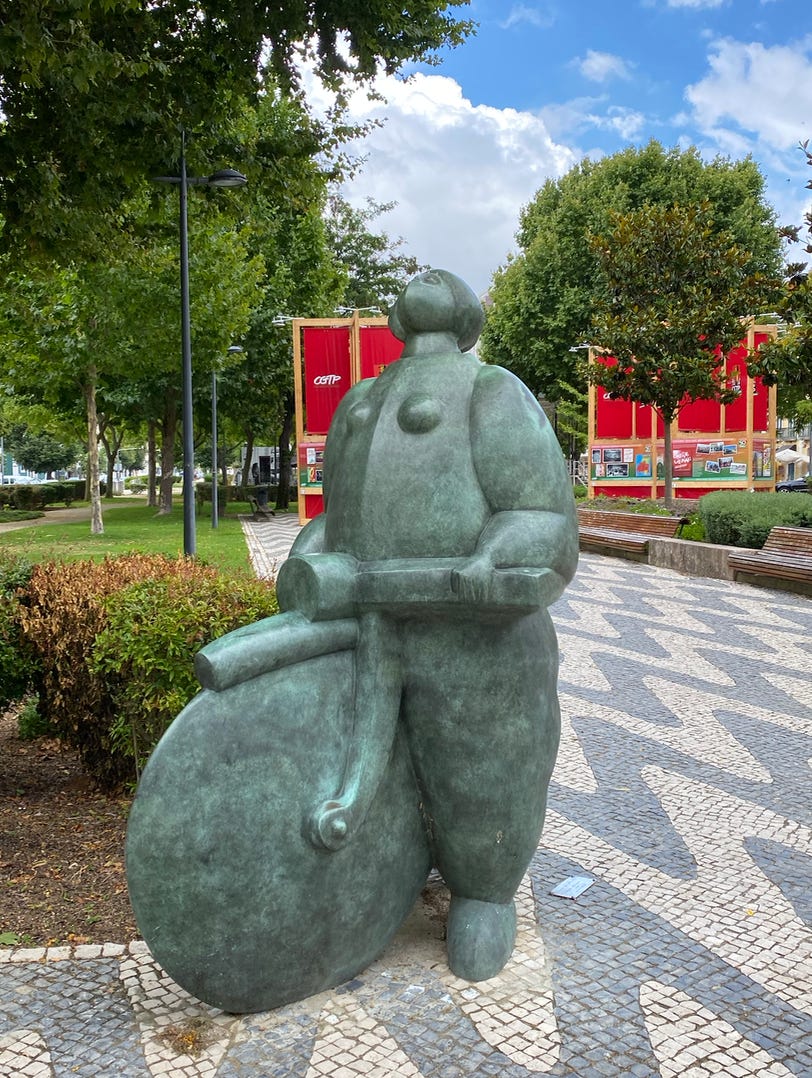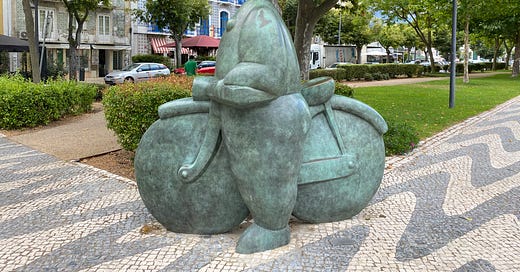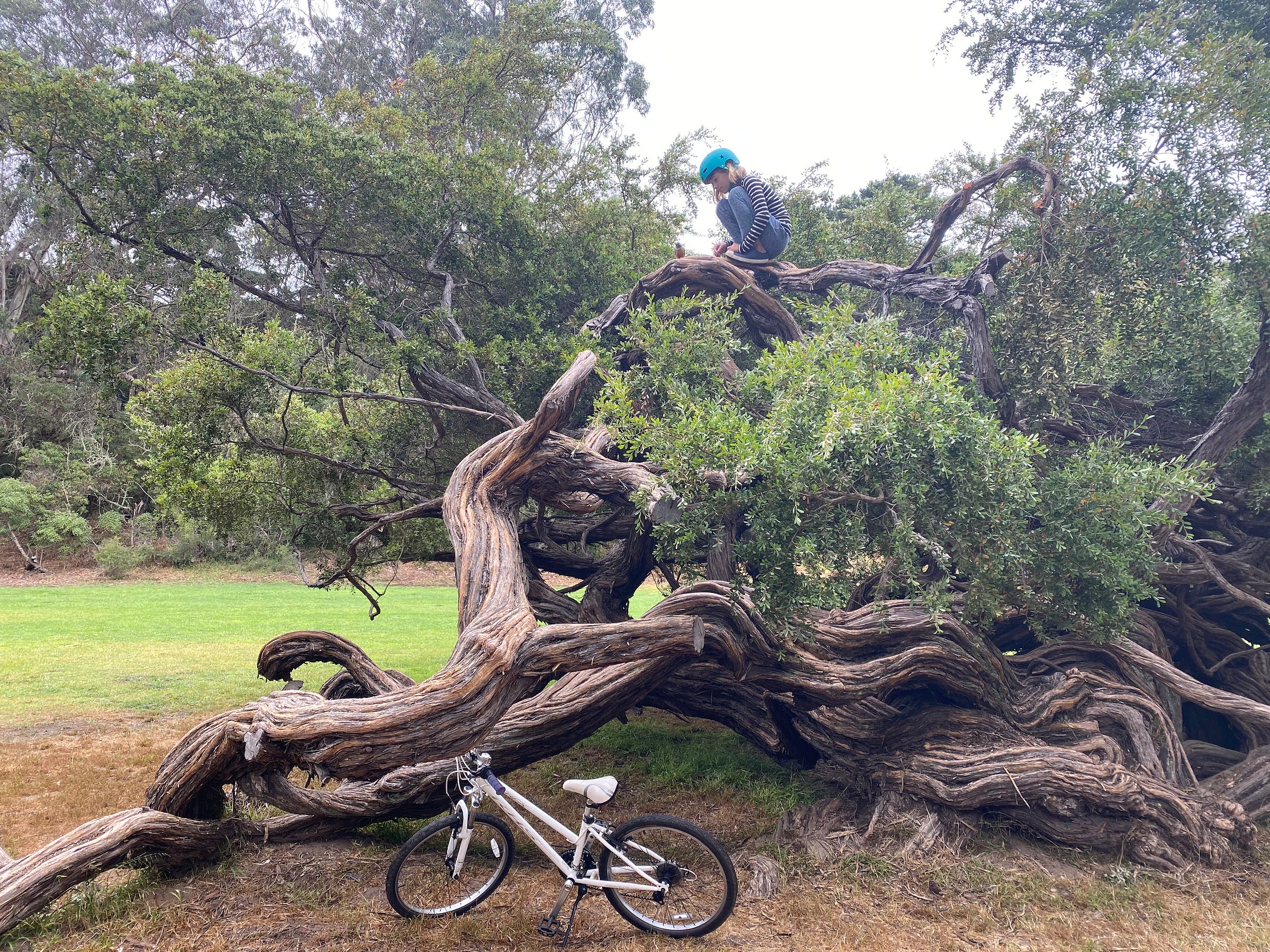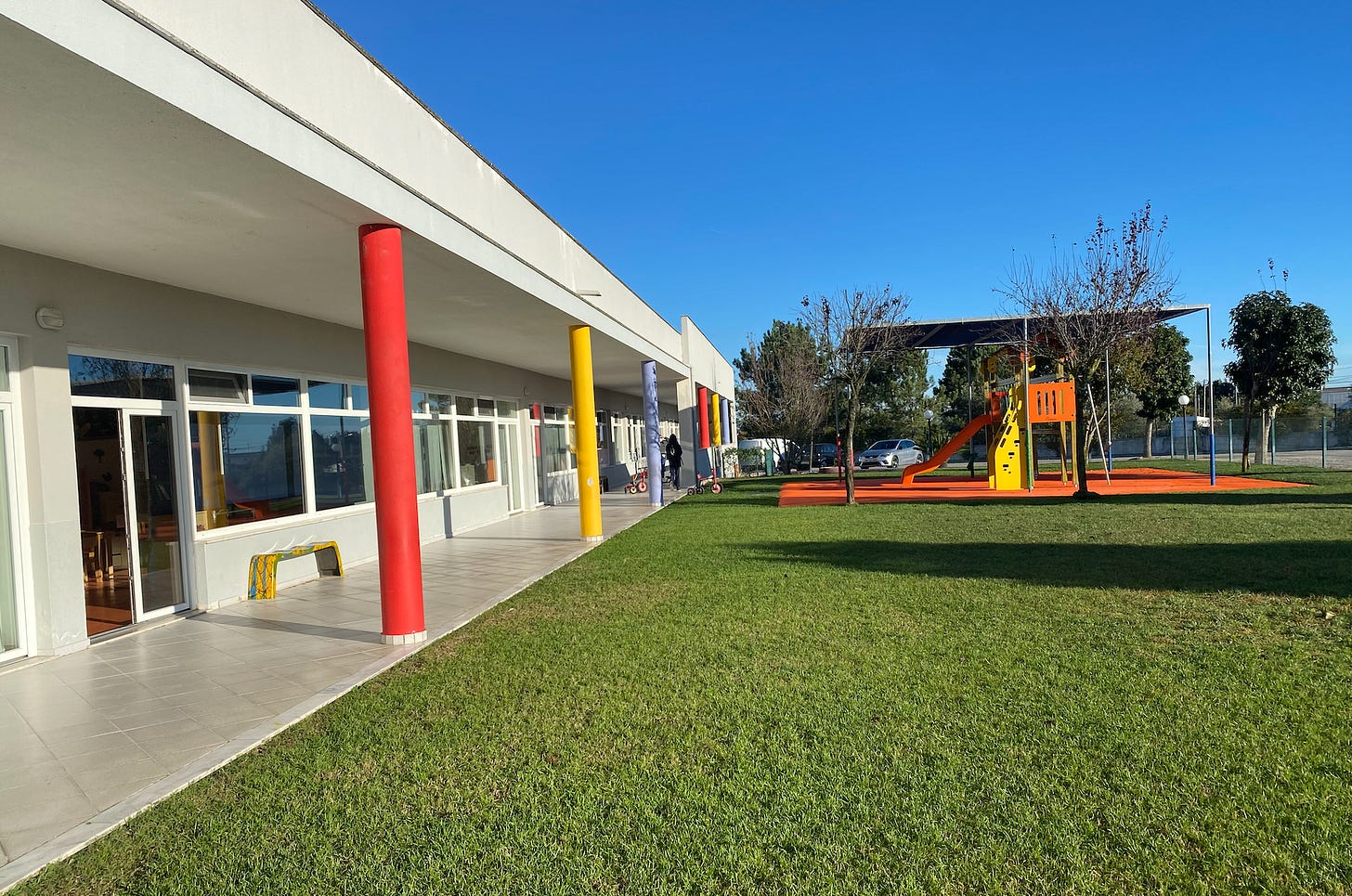What I’m going to tell you is that it’s too soon to tell.
Everyone’s asking—friends, grandparents, blog readers. Everyone wants to know how Filha’s doing in the new school. “How’s it going?” they text, call, message.
The short answer is: Up and down.
The long answer is: It’s too soon to tell. It’s only been one week.
Morning drop-offs are brutal. She insists she can’t do it, it’s too hard. She doesn’t want to get out of the car. I insist that she can do it, that’s she’s stronger than she knows.
I tell her that she’s brave. That I know it’s hard, it’s so hard, but she can do it. I tell her I believe in her.
She walks away from me, dragging her feet down the corridor to the woman who checks her temperature, squirts the hand sanitizer, bounces a cheery “Bom dia!” off my daughter’s bent head.
Then she glances over her shoulder as she steps into the school building, out of my sight.
I flap my hand in a frantic farewell. And then I go sit in the car and cry.
“Parenting isn’t for cowards.” My dad has said this to me for years, long before I ever even thought of wanting a child of my own. As with most wise things your parents tell you, his words bounced around and off me without much impact—just so much ambient sound—until I became a mother myself.
Then I understood the depth of his meaning. I’ve only got 11 years notched on my Motherhood belt, and I have a lifetime of mothering left to go. But already I have a solid grasp on just how hard it is—first just to keep a small burbling human alive, and then to help them learn how to thrive in this big, mad world.
I didn’t always want to be a mother. As a child, I thought other kids were annoying. As a teenager, I avoided babysitting jobs in favor of mowing lawns. As a freshly-minted adult, I thought children were nothing but a drag; loud, destructive, messy balls of id. On airplanes I was the asshole making the miffed face and sighing over-dramatically anytime I heard a baby wail.
Somewhere in my 30s I started worrying that I’d regret it, if I didn’t have a child, if I didn’t at least try.
The point is, becoming a mother was not a whim. I spent years thinking about it, making pro and con lists about loss of personal freedom vs. sacred mother-child bond.
And Filha (filha means “daughter” in Portuguese) is a human beyond my most extravagant dreams. She dazzles me, daily. She’s kind and smart and funny and weird and perceptive and empathetic and stubborn and wild and careful and thoughtful. And her vocabulary, hot damn! It’s legendary. She makes me glad to be alive, just so I can witness the person she’s becoming; the person she already is.
But she terrifies me, too. Or rather, being her mother is terrifying.
I want to protect her/I want to set her free. I want to her life to be easy/I want her to grow. I want to help her /I want her to recognize her own power… Parenting isn’t for cowards.
We knew this first year would be especially difficult. For all of us with all the newness and strangeness and steep learning curves for pretty much anything we do here. But more specifically, we knew the first year of school for Filha would be incredibly challenging.
She’s trying to learn a new language but also a new way of doing school. Even the length of the school days are much different than what she’s accustomed to. In the States she started school at 9:30am and was out by 3:30 in the afternoon. Here, most days are 8:30am-5pm, though she does get a short day on Wednesday.
It seems eight hours are typical for school days in Europe—at least, the same is true in France. I know this because last week I spoke to another American mom who lives in a village in northwestern France. She has six children, a couple of whom are now bona fide adults, so she’s pretty much a pro at this whole relocating-your-kid-to-Europe thing.
I appreciated the stories she shared with me about her own children’s adjustment to a new school/new country/new language: “We told them their only job that first year was to learn the language and learn the culture,” she said. “That’s it. We didn’t care about their grades in any of their classes—we didn’t even ask to see them.”
She also advised that Filha’s time outside of school should be as relaxing and enjoyable as possible. She’s working so hard just to listen and absorb all the newness; when she’s home she should be able to just chill. And when we’re out and about, we should seek out things that she loves about Portugal. That way her overall experience is a positive one, even though school is hard.
“Anyone who tells you the first year in a new country is easy is lying to you,” she said. “It’s hard. It’s just really, really hard. There’s no getting around that part. But slowly, it gets easier.”
Her grown children are fully fluent in French now, and credit their move to France with an abundance of good things. So there’s hope, even though this (school) beginning is a bumpy ride.


“Up and down,” that’s how Filha described her first day at the new school last week. A day that started with her slumping over in the front seat telling me all the ways she wouldn’t be able to do it.
She’s starting most school days this way, to be honest—at least this first week. But when I pick her up at the end of the day, it’s a different story.
One day last week as she buckled her seatbelt she said, “I’m going to tell you something but DON’T FREAK OUT, okay?”
I promised to be cool.
“There’s a girl in my class, her name is Beatriz,” she said, “And today she told me that she’s my friend, so… I guess I made a friend?”
I kept my cool.
Barely.
I wanted to go find this Beatriz and hug her.
She’s not the only one who’s got Filha’s back at the new school—there’s Marina, who I mentioned last time. And another teacher named Lili who is hands-down amazing.
Lili is Portuguese, but lived in the UK for five years. Her English is impeccable and she’s assured Filha that she’s available whenever she needs to talk or needs help.
“I know what it’s like to move to a new country where you don’t know anybody and you don’t speak the language,” she told her. “When I first got to the UK, I could barely put a sentence together. So trust me, I know how you feel right now.”
Beatriz and Marina and Lili are kind of like Filha’s pit crew right now, but it turns out that her entire class has a vested interest in making sure the new American girl feels at home. Most of them speak English to some degree, and are eager to practice by talking to her. When she’s ready, she’ll be able to reciprocate by practicing her Portuguese with them.
Until then, we’re going to go slow. One day at a time. One hour, if we need to.
So yeah, it’s too soon to tell how this school thing will turn out.
But I have hope. And that’s not nothing.
Copyright © 2021 LaDonna Witmer









She will soon become the expert in your family with the language! Ask her often to teach you a new word or phrase, and let her see you struggling to learn what she already knows. Keep a notebook/diary of the new things she has taught you. Then, she can see solid evidence of her growth. Learning a language and acclimating to a new culture IS hard. Just ask my Spanish students! ...and all they are doing is learning a little bit of the language and about the culture. They are not being tested all day long in that other language nor are they having to "fit in" with the culture when they leave class. You have a number of people rooting for you and for her back in the states.
What a beautiful piece, not only your writing but the soul of what's going on... as a parent (long ago) and someone who grew up in foreign countries (much longer ago!) this resonated with me, way deep inside. Kudos to you (all!) ... Filha and dam-good-Mom!